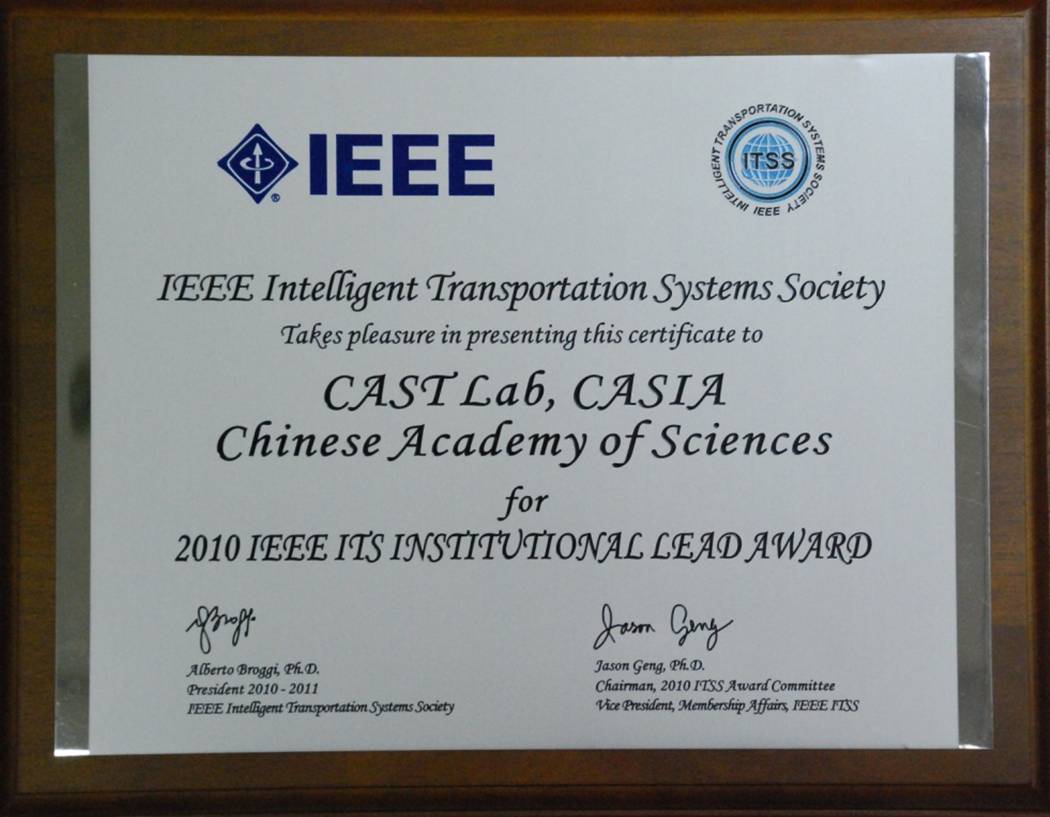According to the recent issue of the IEEE ITSS Newsletters, The CAST (Complex Adaptive Systems for Transportation) Lab of the Institute of Automation, Chinese Academy of Sciences (CASIA), headed by Prof. Wang Feiyue has won the IEEE ITS Institutional Lead Award for 2010 for their outstanding leadership and contributions in Intelligent Transportation Systems (ITS) research and applications over the last decade. The Award, which comes with $1,000, was presented to Prof. Wang at the 13th International IEEE Conference on Intelligent Transportation Systems (ITSC 2010), Madeira Island, Portugal. The IEEE ITS Institutional Lead Award, established in 2005 by the IEEE (Institute of Electrical and Electronics Engineers) and administrated by the Intelligent Transportation Systems Society (ITSS), is given annually to research/development teams around the world who have demonstrated leadership and contributed significantly in promoting and furthering ITS theories, technologies, and applications. From 2006 to 2009, three teams had received this award, which are PATH, UC Berkley, USA (2007), VisLab, Universit degli Studi di PARMA, Italian (2009), and NavLab, CMU, USA (2009). CAST Lab is the first research team from Asia that has received this prestigious award, indicating that the research work of CASIA in ITS has achieved a world-class level.
Due to the nature of complexity involved in transportation problems, it is impossible to conduct large scale real or living field experiments for verifying and validating the effectiveness of urban traffic control and management systems. However, the CAST Lab has proposed the idea of parallel traffic control and management based on its ACP approach (artificial systems, computational experiments, and parallel execution) and developed the corresponding algorithms as well as hardware and software systems, which represents a major breakthrough in this area. In 2009, this system has been successfully applied in the Taicang road reconstruction project in Suzhou, Jiangsu province. Based the field test results since September 2009, the traffic conditions in the area involved have been significantly improved, with the main road capacity increased by 26% and average queue length decreased by 8%-19% during one year period. It’s reported that several major cities, including Asia Game 2010 in Guangzhou, have implemented or planned to promote and apply this system.


